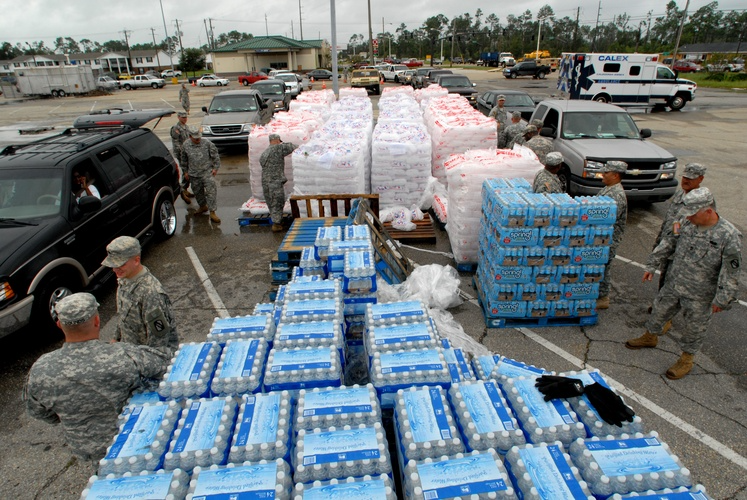In 2018, public procurement, or government procurement, made up a staggering 12% of the entire GPD. A huge amount of this spending is done via government procurement contracts, and the demand exists because the government is able to produce the goods necessary for sustained operation.
Governments exist to provide public goods, which are considered to be items like national defense and public infrastructure, as well as merit goods. Merit goods are things like:
- Education
- Health care
- Nutrition assistance (food stamps, etc)
However, the raw goods and finished materials must be procured through third parties, which amounts to many billions of dollars annually in governmental spending. The government must purchase input elements from private businesses in order to offer public and merit goods, such as police cars, school buildings, uniforms, etc. We refer to this procedure as public or government procurement.
Greenwood Aerospace has been a leader in government procurement for more than forty years, working with all branches of the government and some of the largest defense contractors to provide vital aviation services, including:
- Fixed-Wing Aircraft Acquisition & Support
- Military Aircraft Parts
- Mil-Spec Packaging
- FMS Sales & Support
- Military & Defense Contracting
Contact us for all your government procurement needs, or reach us by email at contact@governmentprocurement.com, and our team will be happy to provide all the information you need to keep your program on time every time.
Let’s take a look at some of the most common types of contracts, what they mean, and what you need to know about them.
The Need for Government Procurement
Who needs government procurement? Everyone, to be perfectly honest.
If you have ever called 9-1-1 to report a fire, you need government procurement.

Called the police to report an impaired driver? You have needed government procurement.
Or if you have driven on roads, you’ve met the end result of a government procurement proposal.
Whether we approve of the outcome or not is another matter, but the facts are that government contracts are here to stay, and government services are here to stay.
Government procurement plays a pivotal role in ensuring the effective functioning of public services and infrastructure. The need for government procurement arises from the sheer scale and complexity of public projects, ranging from constructing roads and bridges to acquiring technology for public agencies.
By engaging in procurement contracts, governments can tap into specialized expertise and resources from the private sector, leveraging their capabilities to efficiently and cost-effectively meet the demands of the public.
Additionally, the procurement process helps foster competition among suppliers, driving innovation and ensuring that taxpayers receive value for money.
In essence, government procurement addresses the inherent challenges and demands of providing essential services to citizens, allowing for the timely and strategic acquisition of goods and services to meet public needs.
What are Government Procurement Contracts?
We have set the stage for the importance of government procurement contracts. We need to answer this question: what are government procurement contracts?
Public procurement and government contracting are the two primary subcategories of government procurement. The process by which governments acquire products and services for the general public is known as public procurement. The method by which governments acquire goods and services for particular projects or programs is known as government contracting.
But in a nutshell, government procurement contracts are agreements that are made between a qualified agent of the government agency in question and private companies. Now, this is way oversimplifying the process, but in short, this is the bare bones of it.
The History of Government Procurement Contracts
The history of government contracting goes back nearly as far as the history of our country.
The following data, courtesy of the FDIC, lays out the historical context of which laws were enacted when and what they did for contracting law:
- Purveyor of Public Affairs Act of 1795: Allowed the government to buy needed supplies and materials to perform government functions
- Civil Sundry Appropriations Act of 1861: Continued the principle of advertised procurements for the next 86 years
- Sherman Antitrust Act of 1890: Protected small companies and their labor force from large businesses
- Eight-Hour Work Law of 1892: Set the eight-hour workday
- Armed Services Procurement Act of 1947: Continued the sealed bid as the preferred method of procurement, placed procurement rules in one location, and gave us the Armed Services Procurement Regulation, which was the beginning of today's rulebook, the FAR
- The Davis-Bacon Act of 1931: Set the minimum wage on the construction site at the local prevailing wage
- Buy American Act of 1933: Required the government to buy only American products
- Walsh-Healey Public Contracts Act of 1936: Required a supplier to certify that it was the manufacturer or a regular dealer. This was an attempt to do away with the "broker" (note that this law was drastically changed in 1994)
- Small Business Act of 1953: Established the Small Business Administration
- Berry Amendment of 1941: Mandated that the Department of Defense buys certain items from U.S. or qualifying countries
- (later modified in 1994, 2002 and 2006)
- Truth in Negotiation Act of 1962: Required both prime and subcontractors on contracts over $500,000 to certify the cost data submitted under the solicitation
- Public Law 95-507, Amendment to the Small Business Act (1978): Formalized the Small Business Subcontracting Plan requirement in contracts over $500,000 to large businesses. Set goals for large prime contractors.
- Federal Acquisition Streamlining Act of 1994 (FASA): Repealed or substantially modified more than 225 statutes and pushed the contracting process into the 21st century. Among other things, it simplified the federal procurement process, reduced paperwork burdens, and transformed the simplified acquisition process into electronic commerce.
- Federal Acquisition Reform Act of 1996 (FARA), or Clinger-Cohen Act: Before FASA could be fully implemented, this Act became law, corrected some deficiencies in the earlier legislation, and made more changes.
Types of Government Procurement Contracts
Now that you have seen a thorough history of government contracts let’s take a look at the different types. Government contracts are not a one-size-fits-all
Fixed-Price Contracts
A fixed-price contract is a type of government procurement contract in which the contractor agrees to provide the government with goods or services for a fixed price. The price is set before the contract is awarded, and the contractor bears the risk of any cost overruns.
Fixed-price contracts are often used for well-defined projects with a clear scope of work.
There are several advantages to using fixed-price contracts. For one, they can provide the government with certainty about the cost of a project. Also, they can motivate contractors to control costs and be efficient. Finally, they can be used to attract competition, which can lead to lower prices.

However, there are also some disadvantages to using fixed-price contracts:
- They can be risky for contractors, as they bear the risk of any cost overruns.
- They can be inflexible, as it can be difficult to change the scope of work once the contract is awarded.
- They can lead to disputes between the government and the contractor, as the government may not be satisfied with the quality of the work or the contractor's performance.
Cost-Reimbursement Contracts
Cost-reimbursement contracts reimburse for reasonable out-of-pocket expenses to the extent indicated in the contract. Because the contractor will be paid for all reasonable costs incurred, this type of contract carries less risk for them. Contracts for cost reimbursement are uncommon when it comes to products supplied in trade.
Time and Materials Contracts
Sometimes, quoting a fixed price just isn’t doable because of the work that needs to be done.
A time and materials contract is a type of government procurement contract in which the contractor is paid for the actual time spent working on the project, plus the cost of materials used. This type of contract is often used for projects that are difficult to estimate or where the scope of work may change over time.
There are several advantages to using time and materials contracts for government procurement. First, they can be used to attract competition, as contractors are not required to bid a fixed price. Second, they can be flexible, as the scope of work can be changed without having to renegotiate the contract. Third, they can be used to manage risk, as the government only pays for the work that is actually done.
According to acquisition.gov, “Sep 7, 2023A time-and-materials contract provides for acquiring supplies or services on the basis of (1) Direct labor hours at specified fixed hourly rates that include wages, overhead, general and administrative expenses, and profit; and (2) Actual cost for materials (except as provided for in 31.205-26 (e) and (f)). (c) Application.”
Indefinite Delivery Contracts
The General Services Agency defines indefinite delivery and quantity contracts as "contracts providing for an indefinite quantity of services for a fixed time. They are used when GSA can't determine, above a specified minimum, the precise quantities of supplies or services that the government will require during the contract period.”
In layman’s terms, this just means that the government cannot determine what resources are required for the contract to be complete. Sometimes, contracts are not so cut and dry as ‘we need the engines overhauled on these 36 turbine engines.’ When a contract deliverable cannot be clearly defined, the indefinite-delivery contract makes sense.
Prime Government Contracts vs Subcontracts
Okay, so let’s talk about prime versus subcontracts.
Any contract between the government and a business (including businesses of only one person) is a prime contract. The prime contractor is the business undersigning the RFP. The crazy thing is that prime contracts can outsource up to 49% of the work to subs, but they are wholly liable for the outcome of the contract.
The subcontractor is like a subcontractor in any other discipline: they handle a defined amount of work that the prime either cannot provide to meet RFP-mandated small business goals or obtain customer insights for the sake of competition in the bid.
How Do Government Contracts Work?
Alright, now we have gotten down to the meat and potatoes of this article: how do these contracts work?
These contracts often follow a four-step process, including:
- Identifying needs
- Acquisition planning
- Solicitation and bidding
- Evaluation and award
Let's dive into each step, and explore their value to the government contracting process.
Identifying Needs
The first step, regardless of what department of the government is involved regardless of what the market is, is to identify the absolute needs of the contract. There are concrete must-haves and then some nice-to-haves if the budget allows.
Let’s say you need to purchase an aircraft tug. What do you need it to do to perform its function? What is the max drawbar pull required? What is the maximum towing capacity?
By identifying these concerns and answering them to the best of your ability, you can complete the first step in the government contract process with confidence.
Acquisition Planning
Now we come to planning the purchase. There is a working relationship between the requesting organization and the contracting office, and together, they will work out:
- If there are any special purchasing requirements that must be made
- Who has the item in question
- Is it a sole source acquisition?
And anything else deemed necessary by the contracting officer, organization leadership, etc.
Solicitation and Bidding
The next step involves solicitation and bidding. There are a bunch of channels where these are posted, with www.sam.gov being the most widely used. Contracts are put out to the public for open bidding to cast the widest net for the right product or service.

Evaluation and Award
The top bids are then compiled, and the contracting officer and the requester go over the bids with a fine tooth comb.
After evaluation, the best overall bid is selected, and the contract is awarded. Now, of course, is where the work begins. The requesting party is usually the CRO, and they must ensure that the contract is executed exactly as described and agreed upon.
Best Practices for Obtaining Government Procurement Contracts
Look, here’s the honest truth: you have got to know what you are doing when you work with the government. The process is strictly regulated, so you had better play by the rules.
Here are a few best practices to consider when you are seeking government procurement contracts:
- Familiarize yourself with the specific procurement processes of the government agency you're targeting. Each agency may have its own rules and procedures.
- Regularly monitor government procurement databases and websites to identify potential opportunities. Familiarize yourself with upcoming projects and contract requirements.
- Obtain relevant certifications, such as small business or minority-owned certifications. Many government agencies have set aside contracts for businesses with specific certifications.
- Craft clear, concise, and compelling proposals. Address the specific needs and requirements outlined in the solicitation documents. Ensure accuracy and completeness in your submissions.
- Adhere to all regulations and compliance requirements. Failure to meet legal and regulatory standards can disqualify you from consideration.
- Successfully securing a contract is just the beginning. Effectively manage post-award requirements and deliverables and maintain open communication with the contracting officer.
Work With Greenwood Aerospace
Government contracts are often hard to land, and a lot of red tape is involved. Greenwood Aerospace is here to help you navigate the maze of finding RFPs, making bids, and executing on those when awarded.
We are here to handle the administrative side of this, navigating the tangled web that is government procurement. Want to know more? Call us, and one of our trusted agents will review our services with you! Or you can start an online quote right now!


.svg)


.png)


